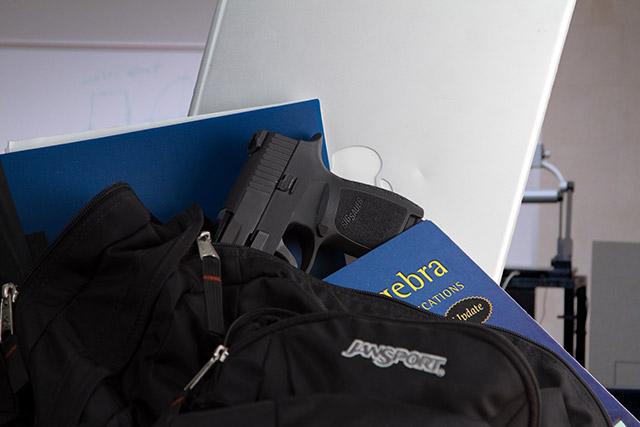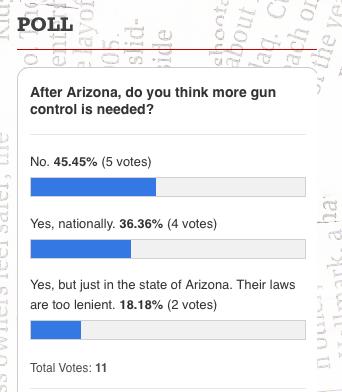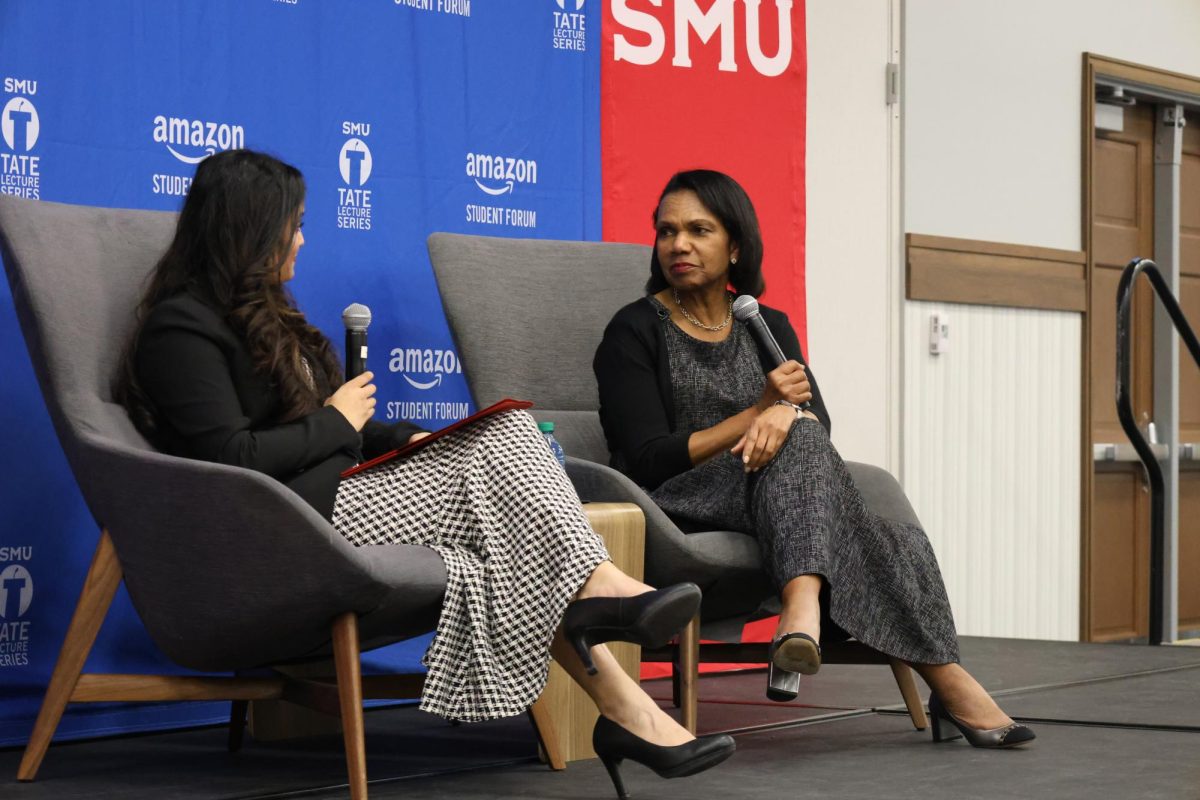
A proposed Texas legislative bill could repeal the ban of concealed handgun licenses on college campuses. (Photo Illustration by MICHAEL DANSER/The Daily Campus)
The 2011 Texas Legislative Session has just begun and already the buzz around concealed carry of handguns on college campuses is heating up in Austin.
Rep. David Simpson (R-Longview) and Senator Jeff Wentworth (R-San Antonio) have filed a bill taking college campuses off the list of areas in Texas where concealed handguns are banned. Rep. Joe Driver (R-Garland) is rumored to be finishing a bill of his own.
But this policy change has been chatted about in the halls of the Texas Capitol for some time, and has yet to be successful. Wentworth’s own previous attempt passed in the Senate by a vote of 20-11 before dying in the House in 2009.
The ban on concealed weapons on college campuses isn’t unique to Texas – the issue has erupted as of late with the recent resurgence of the Republican Party in both state and national offices, and the National Rifle Association has called college campuses the “final frontiers in said, fight for concealed carry.”
But along with nation-wide talk comes nation-wide controversy. Opponents of concealed weapons on college campuses call this fight misinformed and unnecessary.
When the shootings broke out at Virginia Tech in April of 2007, Colin Goddard was one of the many students shot that day. He survived, and now serves as assistant director of federal legislation for the Brady Campaign to Prevent Gun Violence.
In a recent interview with The Daily Campus, Goddard called the movements to allow concealed weapons on campuses “the wrong approach.”
He said that instead of arming students to deal with dangerous situations, universities should instead prevent the situation from ever happening in the first place.
“I don’t like the approach of, ‘well, there’s nothing we can do about this, so we’ll let the students bring their guns to shoot it out with the bad guys,'” he said.
But Justin Till, chairman of Texas College Republicans, said that situations like that aren’t behind the reasoning for allowing college students to carry concealed weapons.
“This isn’t about campus security; it’s about personal security. It’s about ensuring that Texans aren’t forced to choose between getting an education and being able to protect themselves,” he said in a recent press release in which Texas College Republicans and Young Conservatives named “Campus Carry” their “top legislative priority.”
In a recent interview, Till did say that while the ability of a licensed concealed gun owner was first and foremost about personal security, these license holders could also protect others if the need arose.
Goddard said that that kind of situation is what you would want to avoid. He said that gun-toting students would “change the entire situation of an active shooting situation.”
“When the police enter the building, it would no longer be one student with a gun,” Goddard said. “They would have to determine their target from a large group of students who have guns on that campus.”
The bills currently in front of the Texas Legislature allow private schools, such as SMU, to set their own policies in regards to campus carry.
Charlie McCaslin, an SMU junior and vice-chairman of Texas College Republicans, said he supports SMU’s right to decide for itself, but hopes for “an open democratic process in which the Student Senate and administration would extend the right afforded to the students of public institutions of higher education in Texas.”
McCaslin also calls the inability to carry concealed handguns on college campuses “life-threatening hypocrisy,” as Texas allows concealed weapons in most other public locations.
But SMU junior and president of SMU College Republicans (CR) Chad Cohen has a decidedly different opinion. Speaking as an individual, and not as a representative for CR, Cohen called the issue a “recipe for disaster” and questioned the maturity of college students.
“Personally, I’m pretty convinced that if TotalFratMove.com announced it was a TFM to wield a weapon, far too many students would immediately think that was awesome,” Cohen said. “And that’s a little bit of a red flag.”
Wentworth’s current bill does allow colleges some leeway in deciding when and where weapons can be carried, namely at sporting events so long as notification is given beforehand.
Goddard said that this simply isn’t enough.
“The bill the that is proposed…never addressed issues like the bar on campus, or the daycare center, even the hospital. Would you be allowed to bring the guns you bring on campus to places such as that?” he said.
Additionally, Goddard said, while Texas has decently stringent licensing procedures for carrying concealed weapons, other states don’t.
“In Virginia, you have to visit a website, watch one hour video and take an online quiz. Then you mail your results to the district court and they mail you your permit,” Goddard said. “I know people who have these permits who have never fired a weapon in their life.”
Texas currently recognizes con-cealed carry permits from other states, Virginia being one of them. Goddard said that none of the bills currently proposed make any mention of this problem.
McCaslin said that non-Texas licenses wouldn’t be much of a problem because most students that go to public schools in Texas are from Texas. Additionally, he said that there are training days typically provided by groups like Students for Concealed Carry that would effectively educate students, although these training days aren’t mandatory.
McCaslin said that the ability to carry a concealed weapon on college campuses is a right protected by the Second Amendment, and that current law prohibits the right of students to protect themselves.
Joseph Kobylka, professor of political science at SMU, said that while the courts have previously ruled that states can place restrictions on the ability to carry guns, it is an “open political question” as to whether the inability to carry concealed weapons on college campuses “unduly restrict one’s Second Amendment rights.”
David de la Fuente, president of SMU College Democrats, said that his biggest concern about concealed carry legislation isn’t about safety or constitutional rights, but instead that it is “a massive misuse of time that only exists to pander to the far right.”
“To put it bluntly,” de la Fuente said, “in 2011, Texas College Republicans will be lobbying to put guns in colleges, while Texas College Democrats will be lobbying to make sure students can afford to attend college and that our universities receive the funding necessary to remain the best in the nation.”

To vote in this poll, visit our Politically Inclined blog at http














